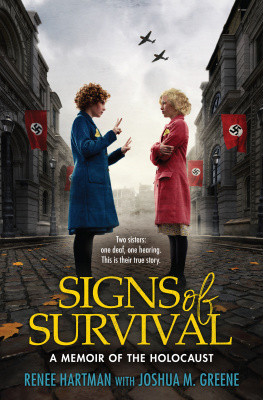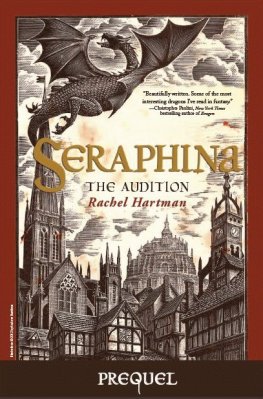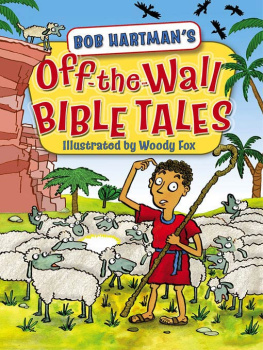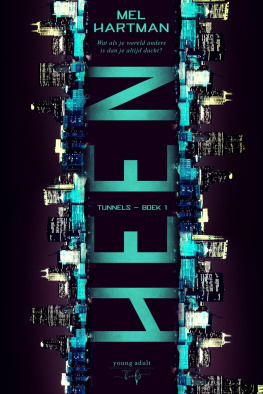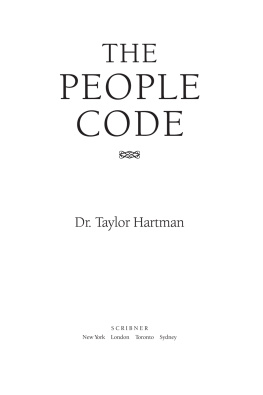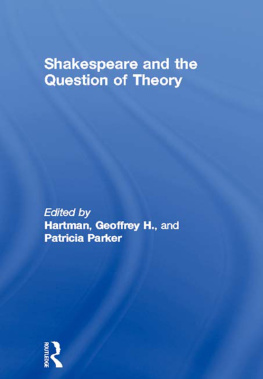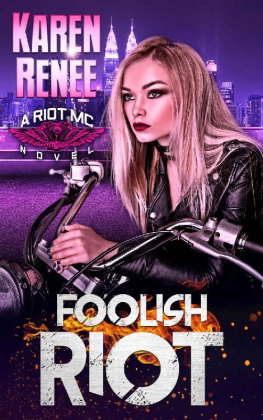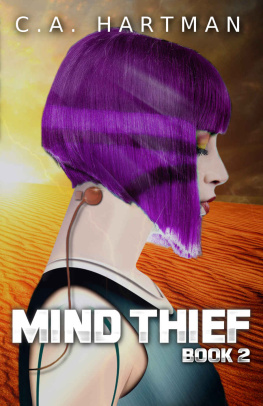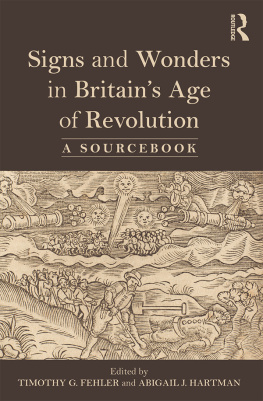Renee Hartman - Signs of Survival
Here you can read online Renee Hartman - Signs of Survival full text of the book (entire story) in english for free. Download pdf and epub, get meaning, cover and reviews about this ebook. year: 2021, publisher: Scholastic Inc., genre: Non-fiction. Description of the work, (preface) as well as reviews are available. Best literature library LitArk.com created for fans of good reading and offers a wide selection of genres:
Romance novel
Science fiction
Adventure
Detective
Science
History
Home and family
Prose
Art
Politics
Computer
Non-fiction
Religion
Business
Children
Humor
Choose a favorite category and find really read worthwhile books. Enjoy immersion in the world of imagination, feel the emotions of the characters or learn something new for yourself, make an fascinating discovery.
- Book:Signs of Survival
- Author:
- Publisher:Scholastic Inc.
- Genre:
- Year:2021
- Rating:5 / 5
- Favourites:Add to favourites
- Your mark:
- 100
- 1
- 2
- 3
- 4
- 5
Signs of Survival: summary, description and annotation
We offer to read an annotation, description, summary or preface (depends on what the author of the book "Signs of Survival" wrote himself). If you haven't found the necessary information about the book — write in the comments, we will try to find it.
Signs of Survival — read online for free the complete book (whole text) full work
Below is the text of the book, divided by pages. System saving the place of the last page read, allows you to conveniently read the book "Signs of Survival" online for free, without having to search again every time where you left off. Put a bookmark, and you can go to the page where you finished reading at any time.
Font size:
Interval:
Bookmark:


Contents
To my two children, David and Elizabeth,
and my nephew and nieces,
Ira, Hetty, and Sara

RENEE: IN 1943, GERMAN soldiers rounded up the Jews living in my city, Bratislava, and sent them to death camps to be killed. There would be eight to twelve soldiers marching together from house to house, knocking on doors, and yelling, Get ready to leave! You have one hour! I remember the stomping of their boots on the cobblestoned streets.
My parents, younger sister, and I lived in a fourth-floor apartment, and when I heard the sound of those boots, I ran to warn my family. Then we rushed into a room at the back of the apartment and hid. When the soldiers knocked on our door, we didnt answer and stayed as quiet as possible.
I was ten years old then, and my sister was eight. The responsibility was on me to warn everyone when the soldiers were coming because my sister and both my parents were deaf.
I was my familys ears.

HERTA: MY NAME IS Herta Myers. Im Renees younger sister. I was born two years after her, in 1935. When I was a little girl, I was the only deaf child in our town. In our family there were several deaf people like me, going back a few generations, including both our parents: our mother, Henrietta, and our father, Julius. We communicated using sign language.

RENEE: We grew up in Bratislava, the capital of what was then called Czechoslovakia. Many years after World War II, Czechoslovakia was split into two independent states, the Czech Republic and Slovakia. Back then, Bratislava was a city of 120,000 people, including 15,000 Jews. In 1939, when the Nazis occupied our city, most of our country was renamed the Slovak Republic, which was then controlled by Germany. Many ethnic Germans lived in and around Bratislava.
Jews living in Bratislavas more elegant neighborhoods were ordered to leave their homes and move into what was called the Old Town, which was a ghetto for the poor. That was where my family began living, in an apartment on the fourth floor of an old four-story brick building. In warm weather, my sister and I grew peas by wrapping them in wet cotton balls. We put the balls into little pots of soil on the windowsill and watched over the next few weeks as pea tendrils sprouted and curled up around the iron railings of the window. From our window, we could also peer down in the evening and see our father returning from his office.
Because the Nazis forbade Jewish children from attending school, I did not start my formal education until after the war, when I was almost twelve years old. By then the only subject I didnt have to catch up on was reading, which my father had started teaching me when I was five years old. I remember how much joy I felt when my parents gave me several books for my fifth birthday. That year my mother was often annoyed with me, because I never answered when she called me. My nose was always buried in my books.

HERTA: Our parents were intelligent people, but because they could not hear, they did not attend a typical college. Instead, they went to the Vienna School for the Deaf. After graduating, my father became a master jeweler, and my mother worked as a dressmaker.

RENEE: Once the Nazis occupied Bratislava in 1939, they regularly entered the homes of Jews and forced them to turn over their jewelry and silverware. Because my father was an expert jeweler, the Slovak firm he worked for ordered him to melt down the stolen silver and use it to make chalices and crosses for local churches. I remember him coming home with designs for these objects and looking so sad.

HERTA: At first my parents wanted me to go to the School for the Deaf like they had done, but after the Nazis took over our city, my parents were scared that I would go to school one day and never come back. So we moved about seventy miles west of Bratislava to Brno, where there was a big Jewish community, and for a while we did feel more comfortable there.
My father tried to homeschool me, but I was lazy and had no interest in most subjects. Id tell him, Oh, lets do that subject tomorrowor maybe the day after. Then I would run outside and walk around Brno with my sister, Renee. Because I was deaf, I had to rely on her to be my playmate, and there were times I complained to my mother that I felt lonely. My mother was always willing to give me her time and attention, so despite the loneliness, I considered myself a happy child.

RENEE: I have one recollection of the German presence at that time, which was when Hitler came through Brno in a car surrounded by Nazi soldiers. All the non-Jews of Brno ran into the streets, cheering and waving Nazi flags, and I remember my father telling me and Herta to stay away from the crowds.
We are not going to show any support, he said.
Im sure there was more to it than what my father was saying. He must have known it would be dangerous for us as Jewish children to go outside with so many non-Jews in the streets, cheering Hitler. My father was no doubt afraid that some harm would come to us. As a six-year-old child, I had no idea about politics, although I recall feeling comfortable and uncomfortable at the same timecomfortable because I spoke German like many people around us, but uncomfortable because most of our neighbors hated us because we were Jews.
My parents must have decided things would get worse now that Hitler had visited Brno, and so they announced we would immediately be returning to Bratislava. We had heard what Nazis did to Jews: The Germans arrested them and sent them to resettlement camps. In those days, we had not yet heard the name concentration camps, but whatever they were called, we knew the camps were dangerous for Jews. To avoid the risk of being arrested and sent to a camp, we packed our bags and returned to our apartment in Bratislava.
Back in Bratislava, at first nothing happened to us. German soldiers there just patrolled the streets as usual. Then it got worse. The soldiers began beating up Jews, and local antisemitic Slovaks also abused us and called us Dirty Jews! and other nasty things when we passed them in the street.
The abuse got worse once the Nazis forced all Jews to sew a yellow starthe Star of David, a symbol of the Jewish peopleon their outer clothing. That was the Nazis way of singling us out in public. One day Herta and I came home and saw our mother sewing yellow cloth stars on our coats.
Lets not do this, I signed to her. If we wear the star, then we cant hide the fact that we are Jews, and it will be worse for us.
We have no choice, she signed with sadness. We have to wear the star. Its the law.
Font size:
Interval:
Bookmark:
Similar books «Signs of Survival»
Look at similar books to Signs of Survival. We have selected literature similar in name and meaning in the hope of providing readers with more options to find new, interesting, not yet read works.
Discussion, reviews of the book Signs of Survival and just readers' own opinions. Leave your comments, write what you think about the work, its meaning or the main characters. Specify what exactly you liked and what you didn't like, and why you think so.

